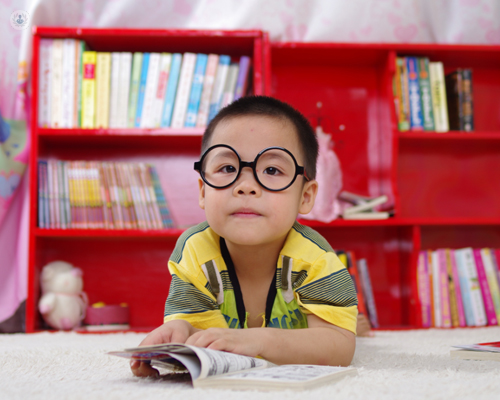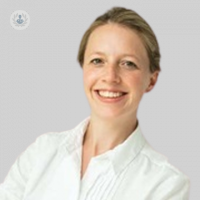Specific language impairment (SLI)
Miss Laura Harrison - Otolaryngology / ENT
Created on: 11-13-2012
Updated on: 09-13-2023
Edited by: Conor Lynch
What is it?
Developmental language disorder (DLD), previously known as specific language impairment (SLI), is a condition that affects language acquisition and can be serious and long-lasting. It starts in childhood and can last until adolescence, sometimes leaving traces in adulthood.

The condition can affect children who have other developmental disorders. Language acquisition is conditioned to development, which may cause some difficulties.
What is the condition's outlook?
Early diagnosis is important. When a child does not communicate in the same way other children the same age communicate, then specialist help should be sought. This can be seen at an early age, for example is if a baby does not respond to stimuli, make noises, and doesn’t laugh, then it means that there could be a problem. The problem might not be due to language acquisition, it might be a hearing issue or even a neurological issue, which is why it is important to rule this and other conditions out.
What are the symptoms?
All patients have different symptoms. They sometimes overlap with symptoms of other development disorders, so it is important to keep an eye on time of evolution and treatment response.
Some of the most common symptoms include children who do not speak until they’re two years old. At three years old, they may speak a little but it is difficult to understand what they’re saying. As they get older, they may have difficulties in learning new words and speaking.
Tests for developmental language disorder
This condition is difficult to identify in children younger than three years old, and even at that age, caution should be taken when carrying out the assessment. The doctor will fill out a questionnaire and interact with the child to try and get more information on their development. There are also a series of tests that can be carried out, including a hearing test. If the hearing test results are normal, then the child will be referred to a speech and language specialist.
What causes it?
The exact causes aren’t known, but they are linked to the inability to identify sounds. This issue may be caused by a genetic component.
How can it be prevented?
Prevention is based on early diagnosis, so seeing a speech therapist is important if there is a family history or a risk of developing a language disorder. It is crucial to avoid situations in which the child feels that they have a problem, as when children think they have a problem they might end up stuttering due to the pressure.
What is the treatment?
There are different treatments depending on the patient's age. Developmental language disorder is treated by speech rehab techniques. The specialist will suggest what medical treatments to use for associated conditions that affect language development, such as hearing loss and hearing loss due to serious otitis, chronic otitis, or other reasons, as audiological issues tend have a direct influence on language development.
It is important for parents, teachers, and doctors to work together. Parents should continue with the same exercises that are done at the appointments. The school should be told of the diagnosis and what kind of treatment has been recommended.
Treatment involves stimulating language acquisition with different planned activities that help improve communication skills. The activities may be visual, which may be easier for the patient to understand.
What specialist should I see?
Otolaryngologists and speech therapists often work together in the detection, evaluation, diagnosis, and treatment of language related disorders.
